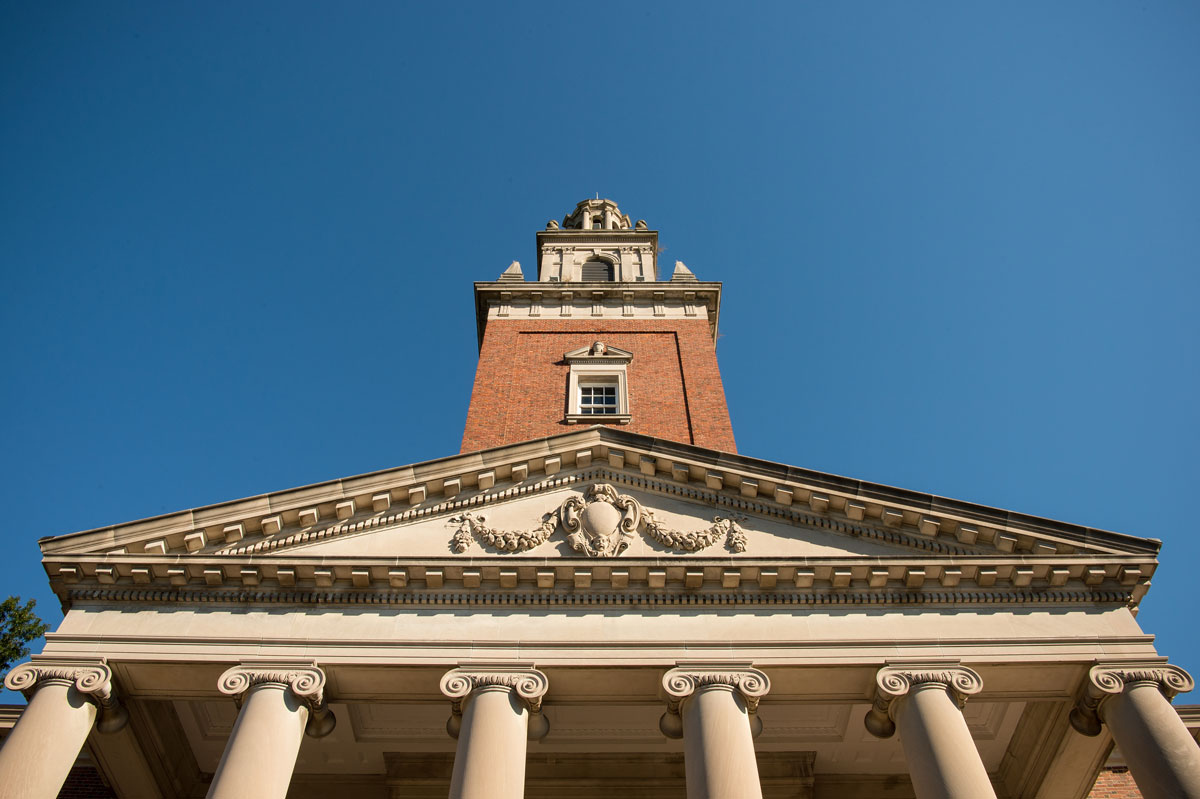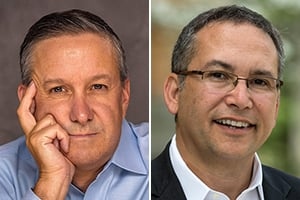College might end in four years, but the experience of going to college — and of launching successfully into a life and career — should last a lifetime, Denison President Adam Weinberg said.
“I don’t ever want to hear an alum say (college) was the best four years of their life,” Weinberg said during a recent interview on the New View EDU podcast. “I want students to come back in 50 years and say, ‘My life turned out better than I ever could have imagined at age 17, because Denison helped unlock my potential to imagine a life that I could never have dreamed of otherwise, and then gave me what I needed to start creating that journey for myself.’”
In discussing “The Future of Higher Ed,” Weinberg and best-selling author Jeff Selingo outlined their hopes for higher education over the next 10 years, including increased affordability and access, and an effective launch into life after college.
They also discussed the importance of students taking advantage of experiences outside the classroom, developing a proper mindset, and cultivating relationships as vital components of becoming a lifelong learner.
Denison’s president said seeking out the mentorship of faculty and staff is critical to a successful four-year run in college. So is forming relationships with fellow students who might not come from similar backgrounds or share the same philosophical or political views.
“I think fundamentally, life-transforming education is about the relational piece, and it’s about the experiences,” Weinberg said.
Selingo and Weinberg also discussed the issue of mental health. Weinberg talks about helping students understand that they have more control over their physical and psychological health than they sometimes believe. Colleges need to help students learn the habits and skills of well-being, which includes good habits around sleep, exercise, nutrition, and technology and social media.
He added that colleges could also help students manage the daily stresses we all face by giving students opportunities to learn various forms of mindfulness. He commented, “folks really should be paying attention to the Mind and Life Institute and the research they’ve been doing.”
Selingo and Weinberg also outlined the pressures involving the college admissions process and how students too often are consumed with getting “into their college of choice” rather than asking “who they want to be.” They would like to see high schools prepare students for the challenges at the college level.
For Weinberg, a key is developing resilience and understanding how to deal with failure.
“We’re so worried that if they experience any bit of failure, they won’t get into a good college, that we’re not giving them the space to learn that failure is the only way to develop the kind of resiliency you’re going to need to be successful in life,” Weinberg said. “I often say to our students, ‘Once you get over your fear of failure and your fear of embarrassment, life gets a lot easier.’ I think one of the great things about residential college is you get to learn all this stuff in a safe, supportive place.”
College is supposed to be challenging – whether it’s facing adversity in the classroom, the athletic fields or in any number of extracurricular activities.
Among the inherent challenges of college are learning to live away from home, interacting with fellow students in residential halls and accepting that courses will be challenging but that they will prepare you for life after school.
“It’s about helping students understand that those struggles are normal,” Weinberg said. “They’re part of the process by design … don’t assume when you’re having a moment of unhappiness, a moment of wondering whether you can make it, that everybody else around you is doing great.”
Learn more and listen to New View EDU from the National Association of Independent Schools.
Find New View EDU on Apple Podcasts, Google Play, Spotify, Stitcher, and many other podcast apps.

